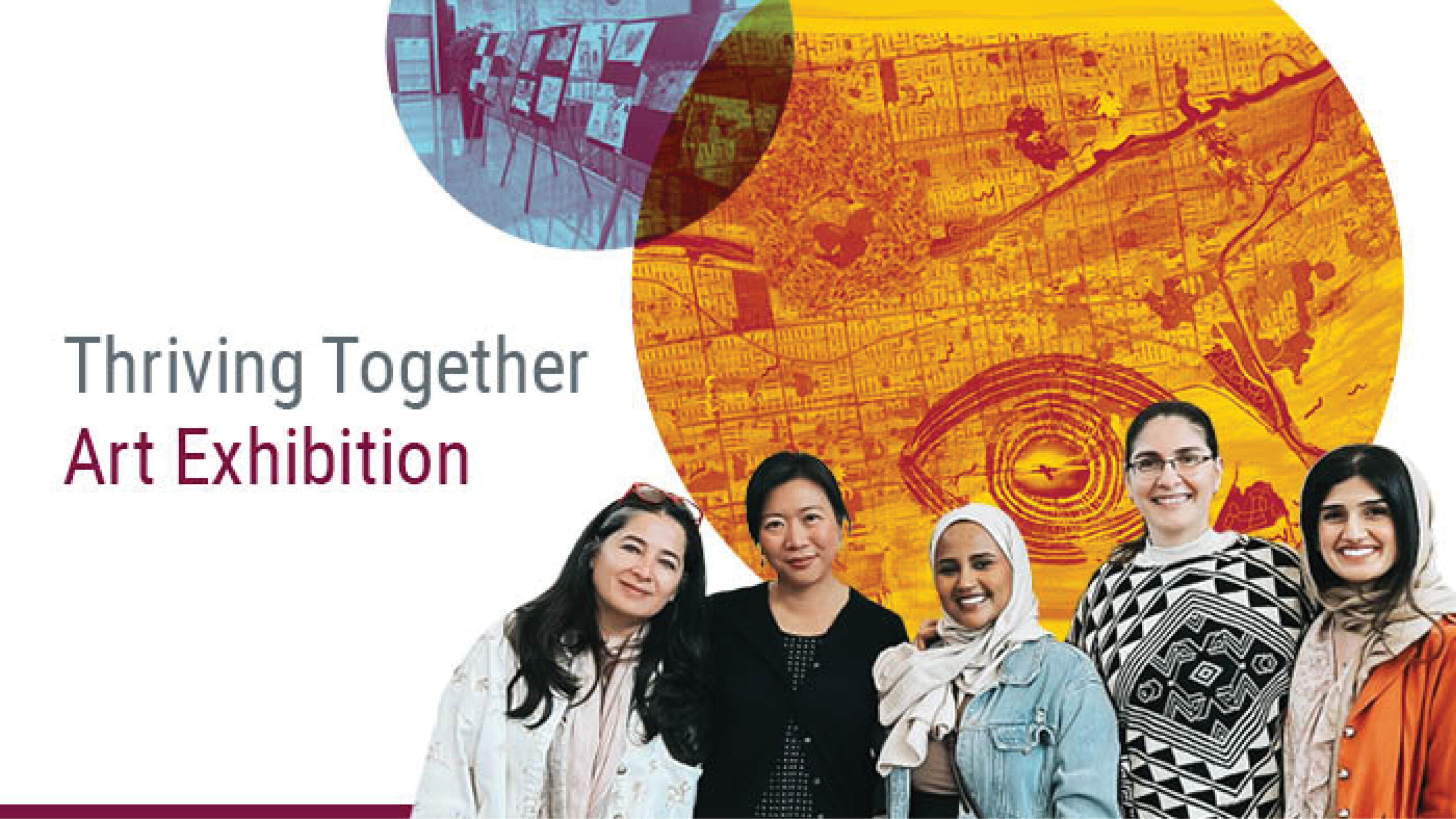McMaster project using art to share findings about refugee mental health

A research program led by McMaster University’s Offord Centre for Child Studies that explores the mental health of newcomer children and families in Hamilton is engaging participants beyond data collection through an unexpected method: art.
The program, called Thriving Together, is led by Amanda Sim, assistant professor, and Kathy Georgiades, associate professor, both from the Department of Psychiatry and Behavioural Neurosciences. Through a series of art workshops, study participants reflected on their new lives in Hamilton and their hopes and dreams for the future.
Refugees represent 35 per cent of Hamilton’s new immigrant population, said Sim, and understanding their mental health needs is key to addressing barriers to care.
“Refugees experience adversities pre- and post-migration that increase risk for poor mental health outcomes, yet we know from other research that refugee and immigrant children and youth are much less likely to access mental health services compared to their Canadian peers,” she said.
The research
Thriving Together consists of several complementary studies and the approach to the project has been collaborative every step of the way. Sim and her colleagues worked with Wesley, a social service organization that provides settlement supports to refugees in Hamilton, to recruit participants, and the research team included a refugee as well as new and established immigrants to Canada. The researchers established an Advisory Group of multi-sectoral service providers and policy makers in Hamilton to inform their questions and objectives, study design, and knowledge uptake strategies. The work began in 2020, initially with funding from the Child and Youth Refugee Research Coalition/SSHRC, followed by additional funding from the Hamilton Community Foundation and Immigration Refugees and Citizenship Canada.
The first study in the program was a qualitative study examining service provider perspectives of barriers to accessible and effective mental health supports for newcomer children and families; the second was a mixed methods study with 40 government-assisted refugee families who arrived in Hamilton from 2018 to 2021; and the third is an ongoing survey with approximately 150 newcomer parents and youth.
“Overall, findings so far highlight the negative impacts of daily resettlement stressors, such as high cost of living, lack of affordable housing, and language barriers on the mental health and well-being of refugee parents and children,” said Sim.
Though parents reported high levels of distress in part due to their caregiving role and lack of social support, many families described finding ways to cope and persevere, including family support, relying on their faith, spending time in nature, and focusing on goals for the future.
The art exhibition
The idea for the Thriving Together Art Exhibition came out of a desire from the research team to showcase the strength, creativity and resilience of newcomer children and families in the community and to bring the research findings to the public.
“We as researchers don’t always do a good job at engaging research participants after data collection and involving them in the knowledge translation process,” said Sim. “Art can be a powerful way to communicate experiences, feelings and ideas, and can connect to audiences on an emotional level.”
With support from a local arts organization, Centre[3] for Artistic + Social Practice, children and parents used a map of Hamilton as their canvas and different materials and techniques including printmaking, collage, paint, fabric, and even stickers to create mixed media art forms.
“The workshops were a wonderful way for newcomer families to connect with one another and reflect on their migration experience. One mother told us that this was the first time she had ever done any kind of art,” said Sim.
With the support of Centre[3] and Hamilton Immigration Partnership Council, Sim and her colleagues launched an exhibition of the artwork created by families from the study on May 24 at Hamilton City Hall.
What’s next
The authors say their findings support calls for more to be done to address the social determinants that negatively affect newcomers’ mental health, to focus on mental health promotion through enhancing opportunities for social connection and recreational activities, and to provide mental health supports that are culturally responsive and tailored to the needs and preferences of newcomer children and families.
In April, the researchers conducted a knowledge sharing event with nearly 70 service providers and government stakeholders to share findings from the study and to discuss implications for improving mental health supports for newcomer children and families. Sim plans to continue to engage stakeholders and drive forward change for newcomers. Earlier this year, Sim and Andrea Gonzalez, associate professor of Psychiatry and Behavioural Neurosciences, were awarded funding from CIHR to develop a national strategic framework for child and youth mental health for immigrant and refugee families.
Though the burden shouldered by refugee parents has been striking to Sim, so is their strength and resilience, especially in the face of enormous hardship.
“They are carrying so much on their own and we – as researchers, service providers, and the general community – need to do more to help them carry the load.”
Learn more about Thriving Together in this video, and visit the art exhibition on the second floor of Hamilton City Hall until June 7, 2023.
Community